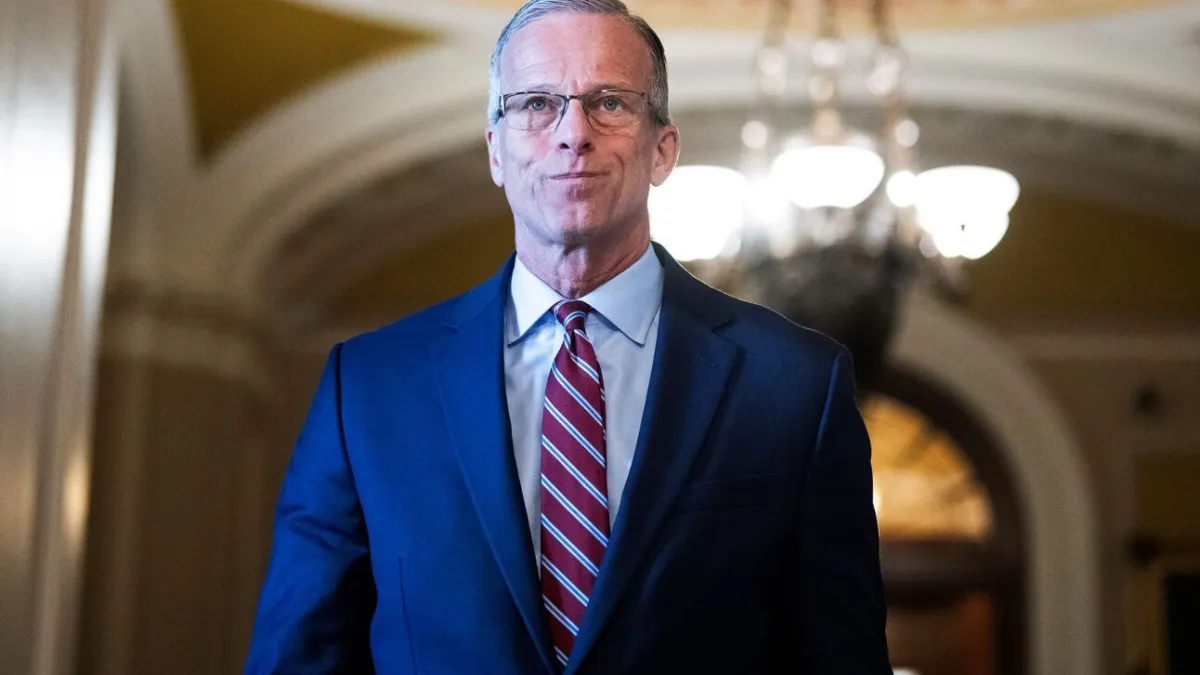
The Senate version of Republicans’ budget reconciliation bill has drawn some stiff pushback from GOP lawmakers this week, raising concerns that the party may not be able to meet its self-imposed July 4 deadline for getting the bill to President Trump’s desk.
The Senate Finance Committee released its portion of the package on Monday, including changes to some extremely thorny elements of the House plan. Now, some senators and House members are raising alarms over the Senate approach to Medicaid cuts, clean energy tax credits, deficit reduction and the cap on the state and local tax deduction.
“My main takeaway for you guys is this bill, as the Senate has produced it, is definitely dead if it were to come over to the House in anything resembling its current form,” Rep. Chip Roy, a member of the conservative House Freedom Caucus, reportedly said on a call with reporters.
Moderate House Republicans were reportedly surprised that the Senate bill would more sharply curb state taxes on medical providers. States have used those taxes to boost the federal Medicaid matching funds they receive, and they then send those funds back to hospitals via higher reimbursements.
Critics have sought to crack down on what they see as a costly gaming of the system. Under the Senate plan, the 40 states that have expanded Medicaid under the Affordable Care Act would see their so-called provider taxes cut from as high as 6% to 3.5% by 2031.
That change has alarmed hospital leaders — and their lobbyists — and upset some Republicans in both the Senate and the House, who are reportedly working to strip the change from the final package. Speaker Mike Johnson reportedly was not told about the change and Punchbowl News says that House Republican leaders don’t believe it could pass their chamber.
Other elements of the Senate proposal are also drawing notable pushback.
- Fiscal hawks complain that the plan still doesn’t do enough to cut spending.
- Blue-state moderates warned against changing the $40,000 cap on state and local tax deductions that they negotiated in the House plan, but the Senate version of the legislation included a $10,000 cap as a placeholder for further discussions. If the GOP reconciliation bill fails, the cap would be eliminated as of 2026, so Republican Rep. Nick LaLota told The Hill that the Senate now has a choice: “It’s either $40,000 or unlimited, because anything less than $40,000 will crash the bill and SALT will come back as unlimited next year.”
- House conservatives, meanwhile, are angry about the Senate’s more flexible approach to rolling back clean energy tax credits. Members of the House Freedom Caucus had warned earlier this month that “if the Senate attempts to water down, strip out, or walk back the hard-fought spending reductions and IRA Green New Scam rollbacks achieved in this legislation, we will not accept it.”
The bottom line: Republicans continue to work out details of their bill, but Majority Leader John Thune said Wednesday that he still hopes to have the Senate take up the bill by the middle of next week and the White House is sticking to the July 4 deadline.